The dangers of over regulating the NHS loomed large in a forthright debate on regulation to mark the eighth edition of the annual HSJ100. Nic Paton reports
The 2012 Health and Social Care Act made NHS trusts answerable to a number of regulatory organisations: Monitor for economic regulation, the Care Quality Commission for healthcare standards, the Office for Fair Trading on mergers and acquisitions, and the Trust Development Authority for non-foundation trusts.
‘There has been understandable political and public clamour post Mid Staffordshire for something to be done but is increased regulation the answer?’
In the aftermath of the Francis report and Keogh review, health secretary Jeremy Hunt announced “a new regulatory model” for the NHS, with Ofsted style ratings for hospitals, a duty of candour and the appointment by the CQC of a number of chief inspectors to cover hospitals, adult social care and general practice.
While there has been understandable political and public clamour post Mid Staffordshire for something to be done, is increased regulation the answer?
To discuss this critical question - as well as to mark the eighth edition of the HSJ100 ranking of the most influential people in healthcare - HSJ convened a high level roundtable in December 2013, in association with recruitment company Harvey Nash and consultancy KPMG.
Roundtable participants:
- Anna Bradley chair, Healthwatch England
- Helen Buckingham chief of staff, Monitor
- Professor David Fish managing director, UCL Partners
- Simon Green director, Harvey Nash
- Professor Chris Ham chief executive, the King’s Fund
- Chris Hopson chief executive, Foundation Trust Network
- Alastair McLellan editor, HSJ (roundtable chair)
- Mark Newbold chief executive, Heart of England Foundation Trust
- David Prior chair, Care Quality Commission
- Piers Ricketts partner, healthcare advisory, KPMG
- Jan Sobieraj managing director, NHS Leadership Academy
The debate, the first of two, looked at the impact increased regulation is having on the health service, its potential downsides and how regulation can be used to best effect now and in the future.
Of course, regulation and scrutiny is not new in the NHS. In his opening remarks, HSJ editor and roundtable chair Alastair McLellan made the point that the 2012 HSJ100 had highlighted the growing influence of regulation in the NHS, to the extent that it had effectively replaced commissioning.
Over the top?
But were we now reaching a point where regulation would be too dominant and healthcare over regulated, he asked the panel; what was the nature and, more importantly, the value of regulation within the NHS?
For Chris Hopson, chief executive of the Foundation Trust Network, the danger lay in reflexively reaching for the regulatory button every time something went wrong and, in the process, creating a culture of fear, blame and recrimination.
‘I think we delude ourselves if we believe regulation is the means of actually driving up the standards’
“My key phrase here, which is one from my new chairperson, is ‘measuring the pig never made it fatter’. There is a clear role for regulators in specifying what the standards should be and measuring performance against them. But I think we delude ourselves if we believe regulation is the means of actually driving up the standards,” he said.
The unacceptable face of regulation was, he added, where it tipped into aggressive, daily performance management. “Not only is it not helping improve performance, it is actually making it worse because the management team has to spend most of their day dealing with the thrice daily phone calls they are getting.”
If healthcare does become over reliant on regulation it will be a sign of failure, warned Professor David Fish, managing director of UCL Partners. Moreover, it will have significant ramifications in terms of the NHS’s ability to attract the dynamic, imaginative leaders and senior executives it needs.
“The most failing, challenged organisations will inevitably have difficulty recruiting good new senior board members, who will be frightened they won’t have long enough to turn the ship around or create improvement, which may have impacts on their career or other progression, so that may be a concern to them. But I have also seen the regulators give some breathing space in that place as well,” he said.
Simon Green, director of Harvey Nash, said: “Whilst regulation is seen as something which is a separate entity and something which is managed - and a common theme in lots of organisations seems to be the need to be managing relationships with the TDA, NHS England or Monitor - then, yes, there probably will be an over reliance on regulation because it is something almost that has to be done rather than something people want to be done.”
One of the challenges for any regulatory system, and certainly one faced by the CQC and Monitor, was how to be predictive rather than simply closing stable doors all the time, argued KPMG partner Piers Ricketts.
“That has been the holy grail of the financial sector - they used to concentrate on the relatively small banks, the foreign owned banks and so on, but actually it was the big ones that exploded and caused the big problems. I think that is the really, really difficult thing,” he said.
“So, how can you look forward as regulators and say ‘what do we think are the main drivers of improvement for some of these incredibly complex organisations?’ If one could harness or get agreement on what some of these big system enablers were, then we’d feel the system as a whole was moving forward.”
A clear view
There also needed to be clarity as to what it was people wanted regulation to achieve, argued Anna Bradley, chair of Healthwatch England.
“From the user/consumer perspective, regulation has to be about consumer protection - and I don’t just mean safety, I also mean quality and experience. I am hoping that, from the new regulatory arrangements, we will end up with the regulation and therefore the consumer protection that consumers and users of services need.
“This is just about regulation of the right things to deliver the right outcomes for people. I think the challenge is that that doesn’t raise standards, and we should not look to regulation to do that. You have to look to all those other players, not least of them patients but also staff, to really give people a sense of empowerment,” she said.
One of the dangers of regulation, and certainly of over regulation, was the negativity that could grow up around it, said Jan Sobieraj, managing director of the NHS Leadership Academy.
“I think patients, the public, will use regulation when something goes wrong, just to prove their case. I think policy makers will use regulation more to inform the decisions they want to make. I actually don’t think senior leadership teams will use regulation as a vehicle for change,” he said.
The priorities for many chief executives - sustainable solutions to urgent care, managing long term conditions better in the community, a more integrated approach to vulnerable people and so on - were much bigger than, say, targets over waiting times but that, inevitably, was where the spotlight got shone, Mr Sobieraj argued.
“Yes, I think we will be over reliant on regulation and I think that is because it is seen as a good means of providing assurance in a time of great turbulence,” agreed Mark Newbold, chief executive of Heart of England Foundation Trust. “But I think experience tells us that what you regulate for, you largely get. The problem is what you don’t regulate for, you don’t get.
“I think Francis reminded us that we were focusing on the wrong things. Part of the turbulence is because the NHS is in the early stages of a tipping point; I think we will by some means or other move to a culture that is patient centred and not professional centred, and that will be difficult.
“My concern about regulation is that it drives adherence to narrow standards of assurance and does not drive those more major changes that we need. My worry is that we will have regulation for very understandable reasons but that it will be a temporary solution and it might even be a disincentive to getting into some of those really difficult transformational areas.”
Punitive or supportive?
Professor Chris Ham, chief executive of the King’s Fund, said: “I think there will be a lot more regulation, a lot more inspection in 2014 and probably too much. Whether that is a good thing or a bad thing depends on what kind of regulation. Being very simple about it, will it be punitive regulation or will it be supportive?”
The problem in aspiring to an Ofsted model of regulation was that healthcare was much more complex and difficult to monitor or regulate than education, Professor Ham pointed out. “So my worry is that we are setting up the regulators to fail because they cannot possibly be the guarantee that bad things will not happen within the system. I fear for the CQC.”
What, then, about the regulators around the table, in the shape of Helen Buckingham, chief of staff at Monitor, and David Prior, chair of the CQC?
“Will healthcare be over reliant on regulation? Yes I think there is a bit of a risk of that. I think it is interesting there has been very little mention here of commissioning,” said Ms Buckingham.
‘I worry that we are setting up regulators to fail because they cannot possibly be the guarantee that bad things will not happen in the system’
“For me, and for Monitor… one of the big things that may cause the system to be over reliant on regulation is that the commissioning system is being so shaken up yet again. You should not see regulation as a substitute for commissioning… at the moment there is a risk of doing that.
“I think we do need to think about how we manage that risk - and we are working with NHS England who are, in a sense, the regulator of commissioners - to think about how we ensure commissioners are doing the right thing and how we ensure the relationship between the regulator and the commissioner enables the system to operate effectively,” she added.
There was also a debate to be had around how regulatory powers were used in relation not just to providers but to pricing, choice and competition, she argued - and how regulators could work as enablers rather than barriers to change.
Mr Prior emphasised it was not the CQC that held primary responsibility for care quality - it had to be the boards of the providers.
Second, it had to be recognised that a regulator, however effective, could never know what was going on in an organisation as well as the patients and staff.
“So I have a modest view, if you like, of regulation. At the CQC, at least in the acute setting, we are much more inspectors - we are shining a light on what is going on; we are not telling people how to do it,” he said.
Boards still decide
For example, on a key issue such as nurse numbers, he said it was not up to the CQC to say whether a trust should implement the Safe Staffing Alliance’s recommended ratio of one nurse to eight patients on general hospital wards.
“What we want to know is that you, the chief executive or director of nursing or medical director, has looked at that ward, looked at the acuity of that ward and has come to a view as to what that staffing should be, whether it should be 10:1, 5:1, 4:1, whether it should be a mix of physios, [occupational therapists], nurses, unqualified, qualified - it is entirely up to the board of the hospital to decide.
“So I think we are more akin in our approach to an Ofsted inspection than we are to an Ofcom regulator,” Mr Prior said.
“The second thing is I believe targets are a dog that’s had its day. What I would like to see is us putting much more weight on ratings, a holistic rating, ultimately by specialty but within the short term by trust, by hospital.
“This would be a much more nuanced assessment that looks at patient-staff engagement, safety outcomes and all the rest of it, but also at whether the hospital is well led in a sustainable way. To me a rating like that is a much more useful thing to have than a series of targets that become very totemic,” he added.
To that end the CQC will be working with the medical royal colleges over the next couple of years to develop a clinically driven, peer reviewed system whereby individual services, such as diabetes or oncology, can be rated.
But in the current climate, and with a general election increasingly focusing political imperatives, is that type of transition realistic, asked Mr McLellan.
How could the CQC navigate itself into a position where it was incentivising and facilitating the development of care, when all the time all politicians were saying “just tell me about hospitals that are going bad”, he asked.
“I think we must get away from these targets,” responded Mr Prior. “They had their role and they had a place and we know the NHS responds to targets.
‘I believe targets are a dog that’s had its day’
“I think we need to have a rating system that the industry has confidence in and that we really feel is giving a rating that is the truth,” he added, though emphasising that organisations would still of course need measurable target indicators.
“I think the issue is how we react to the regulatory outcomes, and it ties in with the nature of the blame culture. The problem with targets is you pass or fail, which perpetuates that,” agreed Mr Newbold.
“So a CQC inspection could say: ‘This is a good leadership team trying to do the right things and we should support them [although] the hospital is not yet good but is on a journey, and this is actually a positive inspection - not because they are good in absolute terms but because they are being well managed and they are prioritising the right things and moving in the right direction’. That would be a very positive outcome. It would also be an accurate one,” he added.
Given the NHS operated within a world of regulation and targets, Professor Ham argued a target that measured a patient’s experience and whether their care had been effectively joined up between primary, community, hospital, social care or mental health would be valuable, motivating and begin the move away from a “toxic” blame culture.
There would need to be a sea change in how troubled organisations were supported, agreed Mr Sobieraj.
“They’re going to have to go in with lots of support, for a fixed period, to do a certain job and I think there is a growing recognition amongst the TDA and Monitor and NHS England that we need a different paradigm for this. We need to measure success in different ways.
“If we do go too far down the performance management route rather than regulation-inspection, and if we over regulate and have inappropriate inspection, then I think it will make even more difficult the very real challenges in recruiting to chief executive, medical director, nursing officer, finance director roles. We know there are a large number of vacancies across the NHS at the moment and the sense of being whipped to achieve high levels of performance and get to the finishing line first will not encourage more good people to come forward.”
Recruits deterred?
When it came to recruitment and the attraction of talent, the role and effectiveness of regulators would have a critical effect, said Mr Green.
“There certainly are some individuals who will think very long and hard and say ‘is this the right time?’ In terms of what is perceived as an attractive organisation, people are looking more and more towards what the regulator views.
“Bizarrely, some of those organisations seen as more attractive are those that have had a really heavy light shone on them and lots of the issues have been identified. There seems to be more nervousness about the organisations that haven’t been regulated to the same intensity, where people are a bit more worried.”
Ultimately, argued Mr Prior, there would always be some hospitals that failed because the management was not up to it, though for most it was because the system they were in was out of balance or there were difficult legacy issues to contend with. The other issue, often unspoken, was money.
“Francis said he thought there should be one regulator: the monitoring side of Monitor, not the improvement side, and the CQC should be together and, actually, of course they should be together; it’s just that the CQC was in a dreadful state a year ago,” he said.
“I think the clear divide is not between money and quality, it’s between holding up the mirror and doing something about it. And it seems to me that Monitor and the team are clearly in the ‘doing something about it’ space and we’re clearly in the ‘holding up the mirror’ space.
“I think when you are holding up the mirror you have got to be looking at efficiency and money as well as quality and safety and all those things, you can’t separate the two.”





















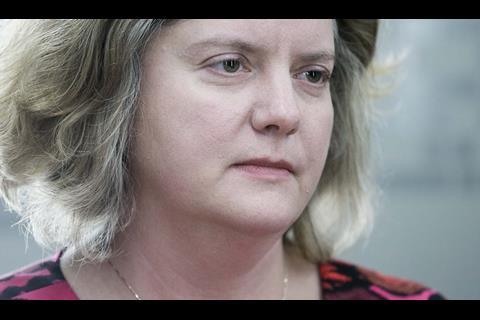


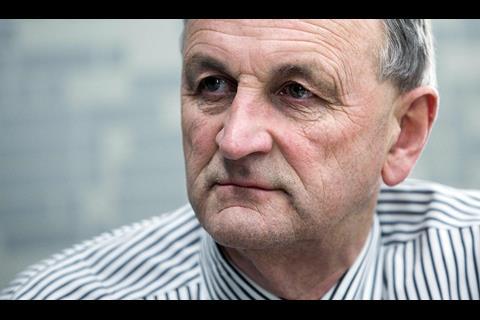
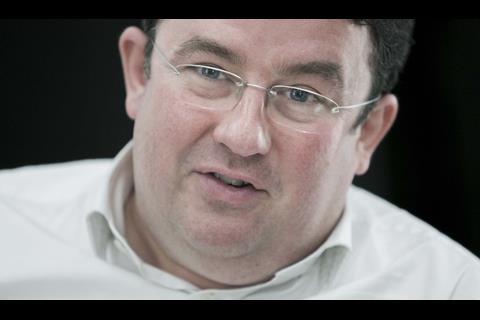

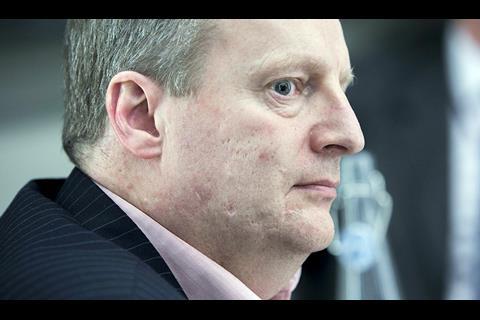
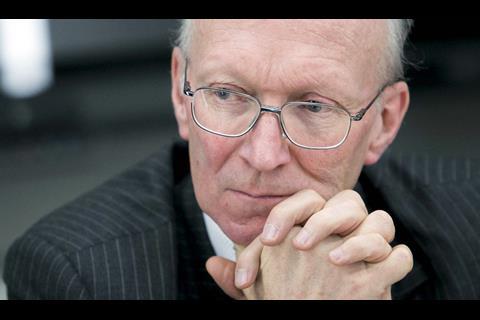

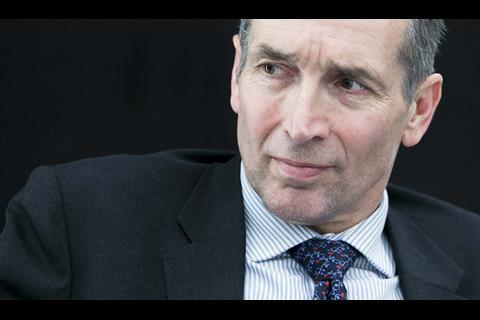






No comments yet